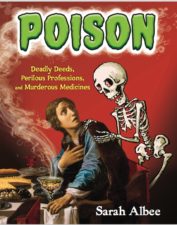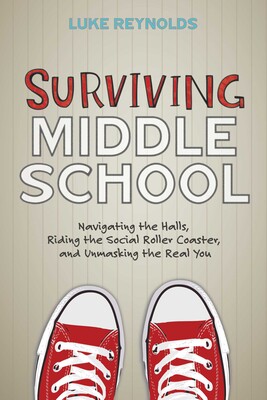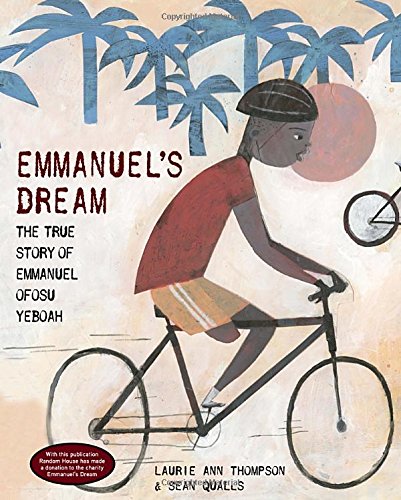A few weeks ago, I reviewed POISON: DEADLY DEEDS, PERILOUS PROFESSIONS, AND MURDEROUS MEDICINES, by Sarah Albee. Today, I’m excited to host Sarah for an interview with the author! Read on to learn more about how she wrote this particular book and much, much more…
LAT: Welcome, Sarah, and thanks for agreeing to answer my questions!
LAT: You know how much I love your new book, POISON. The whole time I was reading it, though, I kept wondering… how did you first become interested in writing about poisons?
 SA: I’ve been fascinated with poison ever since I was a young kid, from the first fairy tales that were read to me, to stories that I read myself as I got older. Snow White, Sherlock Holmes, Agatha Christie, Shakespeare—I wanted to know if those poisonings from literature were possible in real life, and if they were, I wanted to know what was going on at the molecular level of a person who’d been poisoned. The idea of writing a book about poison occurred to me a few years ago, as I was researching my book, Why’d They Wear That? Associating poison with fashion may sound odd, but my interest was piqued as I learned more about how arsenic became wildly popular in the 19 th century—it was everywhere—at every apothecary shop, in arsenical green fabric, in paint pigments, even in edible arsenic complexion wafers (!). The history of poison just seemed like a perfect way to link so many things that intrigue me—mysteries, detective stories, human passion, alchemy, art, politics, social history, and the history of medicine.
SA: I’ve been fascinated with poison ever since I was a young kid, from the first fairy tales that were read to me, to stories that I read myself as I got older. Snow White, Sherlock Holmes, Agatha Christie, Shakespeare—I wanted to know if those poisonings from literature were possible in real life, and if they were, I wanted to know what was going on at the molecular level of a person who’d been poisoned. The idea of writing a book about poison occurred to me a few years ago, as I was researching my book, Why’d They Wear That? Associating poison with fashion may sound odd, but my interest was piqued as I learned more about how arsenic became wildly popular in the 19 th century—it was everywhere—at every apothecary shop, in arsenical green fabric, in paint pigments, even in edible arsenic complexion wafers (!). The history of poison just seemed like a perfect way to link so many things that intrigue me—mysteries, detective stories, human passion, alchemy, art, politics, social history, and the history of medicine.
LAT: And that linking of so many different topics is one of the biggest reasons I enjoyed reading it so much! Besides geeky nonfiction authors, what kind of readers do you think this book will appeal to?
SA: I hope it will have what publishers call “crossover appeal,” which for me would be kids who think they prefer to read only fiction. I personally love knowing the “back story,” no matter what genre I’m reading. I find that I still ask myself: “Could that actually happen in real life?” I hope the book will appeal to science-oriented readers, history lovers, and to kids who love mysteries!
LAT: I think it will. Your passion for the subject comes through on every page. What was your favorite part of the book to research and/or write?
SA: At the risk of sounding hokey, every part of the research was fascinating. Poisons in the ancient world, poisons in the Renaissance, poisons in the 19th century and the rise of forensics—I mean, there was literally never a dull moment. I loved visiting a poison plant garden and seeing in person all the poisonous plants I’d been reading and writing about. I loved talking to museum curators and getting special, private access to amazing collections of bones and body organs and
artifacts.
LAT: Sounds like fun! What was the hardest part of the research and/or writing for you, and how did you deal with that?
SA: The hardest part was figuring out how to narrow down my topic. Early drafts of the book were, well, in need of a firm editorial hand. Luckily I have wonderful beta readers and a fantastic editor, and with varying degrees of gentleness and candor, they informed me that I needed to cut, cut, cut. Thank god for editors.
LAT: Hear, hear! I can relate to that one. Did anything during the research phase surprise you, catch you off guard, or make you change your planned course for the book?
SA: Yessirree. See above re having to narrow down my topic. In an earlier draft, I’d included a pretty extensive history of anesthesia. It is SO COOL. Preparing a patient for surgery in ancient times ranged from having the patient inhale fumes from a soporific sponge soaked in mandrake and opium, to bonking him over the head with a mallet. Which unfortunately led to many patients never waking up. The discovery of ether and chloroform totally transformed the way surgeons performed operations. But my editor and I finally decided we needed to cut most of that out, which pained me as much as bodily cuts without anesthesia. (Ha ha, not really!) Although many types of poisons were used as both analgesics and anesthetics, I had to acknowledge that they didn’t quite fit in a book about nefarious poisons. (Side note: I now have the most profound respect for anesthesiologists.)
LAT: Perhaps it’ll come in handy for another book, somewhere down the line. I can image you collected a TON of interesting information along the way. How do you manage all of your research for a book like this? What’s your system? (Tell me, please, because mine feels woefully amateurish!)
SA: Ha! I wish I could tell you that I’m super systematic about my research, but every time I begin a new project it’s a big, blobby mess. For this book, I began by reading widely—biographies about the Borgias, Roman emperors, Catherine de Medici, Empress Wu. I read early medical journals, up-to-the-minute scholarly articles, and primary sources like travelogues and diaries. I took an online course in chemistry, and another in forensics. I interviewed tons of people, and became a pest to my science-teacher friends (“explain to me again what an alkaloid is?”). The one godsend was I knew what my structure would be—the book would be chronological, from ancient times to the present, so I was able to lump my topics and my poisoners/victims into their respective historical eras.

LAT: Wow, that’s an impressive research list! Did you do all the photo research for the book too? Can you tell us a bit about that process?
SA: The first time I did my own image research, many books ago, I was overwhelmed, and totally clueless about how to go about it. Image research is a steep learning curve, but now, many books later, I absolutely love that phase of the process. I did a couple of guest posts on Melissa Stewart’s blog about image research for students here, and for professional writers here, if people would like a bit more detail.
LAT: You’ve helped me come up to speed in that area as well, and I’m eternally grateful for your generous advice!
LAT: I think every book teaches us something new, about the world, about ourselves, or about the craft of writing. What have you learned as a result of writing this book?
SA: I try not to get too political in my books or on social media, but the more research I have done about the horrors of poisons and environmental toxins people used to be exposed to, the more horrified I have grown by the current trend in our country to roll back hard-fought regulations for clean air and clean water, and to defang agencies such as the FDA and the EPA. When you know the history of the way things used to be, you shudder at what could happen once again.
LAT: I had the same thoughts when I was reading your book. I’m glad that myself, and all the other readers out there, will have this broadened perspective going forward.
LAT: What other writers do you look up to and why?
SA: I have so many kidlit writers that I look up to and love, both fiction and nonfiction—but this answer would be way too long if I tried to list all of them. So I’ll stick to just a few writers of adult books I admire. Mary Roach is a favorite of mine. I love her sense of humor and her offbeat science topics—I like to think that our missions are aligned. I love P.G. Wodehouse. I love historians who can write, and write well. It’s like a breath of fresh air when you find a scholarly, well-researched book that’s also beautifully written for a reader’s enjoyment, with grace and style and wit.
LAT: What are you working on now?
SA: I’m working on several projects right now and I wish there were more hours in the day because I’m so excited about all of them! I have a book about the human/dog relationship coming out next March with National Geographic, called Dog Days of History. And I’m working on a book that’s a collection of quirky biographies, as well as a series of biographies for much younger readers, and a new American history series for upper elementary kids, which will probably be called “What Were They Thinking?”
LAT: Gosh, you’re busy! Is there anything you wish I would’ve asked you but didn’t?
SA: You’ve done a darn good job covering the bases, Laurie. But hmmm. Kids often ask me what my favorite part of my job is. And I joke about how great it is to be able to work at my bed-desk, but honestly, one of the best parts of this job is when I visit schools, and meet the kids I work for. Let’s face it: for a nonfiction writer, fiction can be stiff competition, not to mention the myriad screen-time options vying for kids’ attention. So my goal is to write fascinating, entertaining, and accurate books that kids choose to read. I want them to see how amazing history can be.
LAT: Well said. I feel exactly the same way. I’m so glad you could visit, Sarah, and thank you for answering all of my questions!
You can find out more about Sarah Albee at her website, and be sure to check out POISON: DEADLY DEEDS, PERILOUS PROFESSIONS, AND MURDEROUS MEDICINES!



